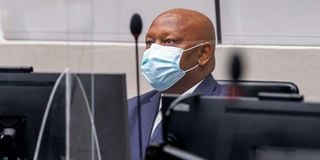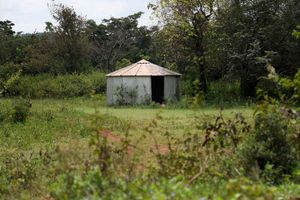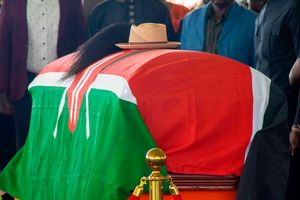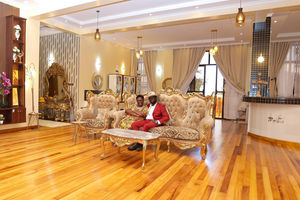Premium
Lawyer Paul Gicheru's fate in ICC judges’ hands as case closes

Lawyer Paul Gicheru during the opening of his case at the ICC on February 15, 2022.
The International Criminal Court (ICC) yesterday closed the trial of lawyer Paul Gicheru over alleged bribery of witnesses that were to testify against Deputy President William Ruto in relation to the 2007 post-election violence that left 1,200 people dead.
His lawyers and ICC prosecutors clashed in their counter arguments at the end of the trial that lasted 19 months, where Ruto was mentioned multiple times. Trial judge Miatta Maria Samba said the chamber will deliberate on the proceedings and, within a reasonable period, pronounce its decision on either conviction or acquittal.
The Office of the Prosecutor led by senior trial lawyer Anton Steynberg pressed for a conviction but Mr Gicheru’s defence team criticised the quality of investigations and urged the court to pass a verdict of not guilty.
Defence lawyer Michael Karnavas said the OTP did not conduct investigations in the Rift Valley, which was the alleged scene of crime, even though they were not forbidden by the Kenyan government. Unlike the previous court sessions, where the public gallery was virtually empty, there was huge attendance during yesterday’s final proceedings.
Appearing before Trial Chamber III Judge Maria Samba, Mr Steynberg said the evidence adduced against Mr Gicheru was not only consistent but also corroborative and sufficient to secure a conviction.
The prosecutor submitted that Ruto was the only and main beneficiary of the witness interference scheme that was orchestrated by his associates, including Mr Gicheru, Mr Meshack Yebei – who was later kidnapped and killed – journalist Walter Barasa and Mr Phillip Bett.
He blamed Mr Gicheru and other persons for the termination of Ruto’s criminal case. Mr Steynberg said Mr Gicheru bears criminal responsibility of the crumbled trial since the interference led to mass withdrawal of witnesses and recanting of evidence.
The prosecutor alleged that Mr Gicheru offered witnesses financial benefits, promises of employment, while in some cases, he reportedly used threats and intimidation. He, however, admitted that some of the witnesses that had been lined up against the DP had credibility issues.
“It is not denied some witnesses had credibility issues and had at some point told lies including under oath. This is after all corruption,” said Mr Steynberg. Mr Karnavas said the evidence was obtained from “opportunists, con-artists and confabulators”.
Mr Karnavas said the OTP’s investigation is “a textbook lesson on how not to conduct an unbiased, methodical and diligent investigation”.
“Alarmingly, the OTP is expecting the trial chamber to find the needles of truth – if any exist – hidden in the massive haystacks of lies by each witness, inaptly cherry-pick through the witnesses’ accounts with preference accorded to the most recent versions produced through countless and ever-evolving “clarifications”,” said the defence counsel.
He argued that the evidence adduced against Mr Gicheru – if viewed holistically and objectively – does not rise to the level of proof beyond a reasonable doubt.
“OTP conducted an irreparably flawed investigation, based on the lies, hearsay, and unsubstantiated claims by grifters, opportunists, con-artists, and confabulators of Olympic proportion,” said Mr Karnavas.
“Investigators failed to comprehend the witnesses’ interconnectivity and proclivity of passing information on to each other according to their own motives and goals – obtaining money and relocation from the ICC,” he added.
He said the investigators dangled before witnesses the possibility of being relocated from their places of residences when obtaining and recording their evidence.
“Witnesses who were known to have lied were interviewed an inordinate number of times to smooth out inconsistencies and improbabilities in their evidence or tailor it to the OTP’s case,” Mr Karnavas said.





